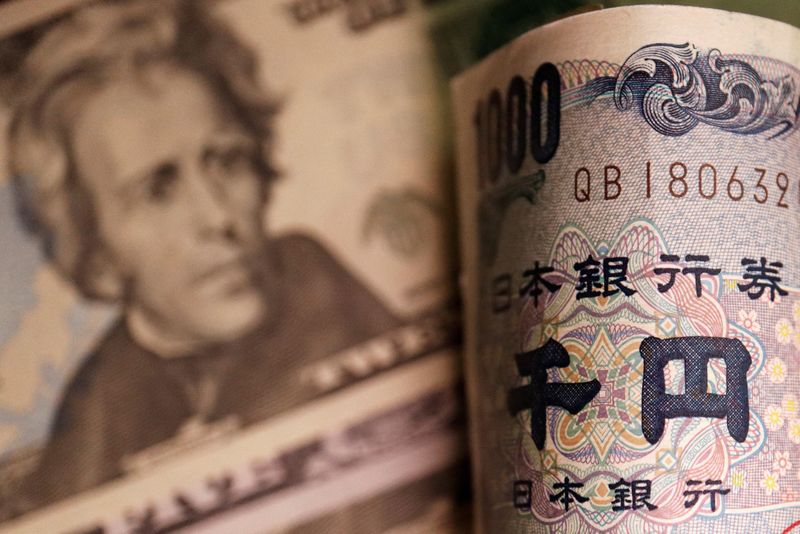By Saqib Iqbal Ahmed
NEW YORK (Reuters) -The dollar edged down against the euro as upbeat German business morale data supported the common currency, while a modest improvement in investors' appetite for riskier currencies weighed on the safe-haven dollar.
German business morale rose more than expected in December as the outlook for Europe's largest economy improved despite the energy crisis and high inflation, a survey showed on Monday.
The euro rose 0.2% to $1.06085, not far from the six-month high of $1.0737 touched last week.
"I think the dollar is generally softer on slightly higher risk-on trading," said John Doyle, vice president of dealing and trading at Monex USA.
The U.S. currency, which rallied for much of this year on a hawkish Federal Reserve and rising geo-political tensions, has come under pressure in recent weeks as investors bet the central bank may have limited room to keep on with its inflation-fighting interest rate hikes.
Last week, Chair Jerome Powell said the Fed will deliver more interest rate increases next year despite a possible U.S. recession, with rates expected to peak above 5%.
European Central Bank vice-president Luis de Guindos said on Monday it would keep raising euro zone rates to curb inflation and was not considering revising its own mid-term inflation goal of 2%.
The Australian dollar, viewed as a liquid proxy for risk appetite, was 0.19% higher after President Xi Jinping and his senior officials pledged to shore up China's battered economy next year in the face of the worsening spread of COVID-19 in the capital Beijing.
"Aussie is getting a bit of a lift on the Chinese news," said Doyle.
"(The move) might be a bit of a relief rally after getting stomped at the end of last week," he said.
The dollar was 0.2% higher against the Japanese yen after falling as much as 0.7% in the session on a report Japan is considering revising a key monetary policy after a new Bank of Japan governor is appointed in April.
The government will consider revising a joint statement it signed in 2013 that commits the central bank to meeting a 2% inflation target as soon as possible, sources said.
"The upshot is this perhaps provides timely flexibility, but it doesn't bind monetary policy bias one way or another," said Vishnu Varathan, head of economics and strategy at Mizuho Bank, adding more clarity was needed for a bigger impact on the yen.

South Africa's rand jumped more than 2% after its President Cyril Ramaphosa was re-elected as the leader of the ruling party African National Congress (ANC).
Meanwhile, bitcoin was 1.7% down at $16,553 as cryptocurrencies continued to nurse sharp losses following the high-profile collapse of crypto exchange FTX.